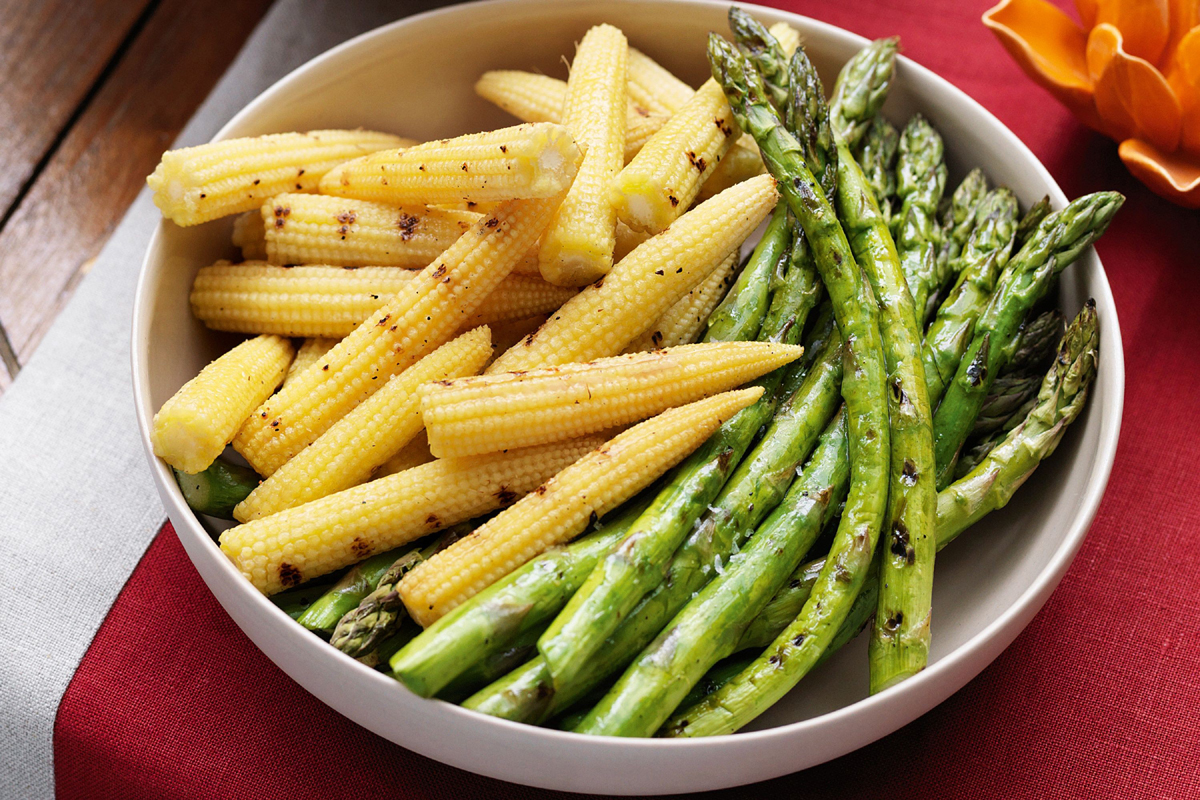Akhil Verma, B.C. Sharma
Baby corn is a young finger like cob of maize 6 to 11 cm in length and 1.0 to 1.5 cm in diameter with 2 to 3 cm emerged silk preferably harvested within 1 to 3 days of silk emergence from the cob when no fertilization has taken place. The dehusked young ears of baby corn can be eaten raw or as vegetable, by virtue of its sweet flavour and soft crispiness. It is used in diet in a number of ways such as salads, chutnies, vegetables, pickles, kheer, sand witches, pizas, chineese preparations etc. Baby corn is an important crop of Thailand, China, Taiwan and India.
Baby corn like grain corn can be cultivated on wide range of climates. However, it is best suited to areas having tropical and sub tropical climates with well distributed seasonal annual rainfall of 400 mm or more. Temperature in the range of 21 to 32 oC is ideal for the growth and development of this crop. This crop can be cultivated thrice in a year if temperature does not fall below 15oC and provision of irrigation is there particularly during summer season. Baby corn can be grown on all type of soils except on heavy clays. The most suitable soils for its cultivation are sandy loam to silty loam. Water logged soils with poor drainage are deleterious for the crop.
Baby corn cultivation is suggested to farmers due to the reasons:
Highly remunerative crop: The farmer can earn money by growing baby corn in shortest possible time of 50 to 70 days depending on the climatic conditions. A farmer can earn a profit of 2 to 4 lakh from one hectare of land in one year.
Employment generation: Employment generation is ensured round the year especially to rural poor as 3 to 4 crops can be raised in a year.
Food and Nutritional Security: Baby corn is the answer to food and nutritional security issues as it is a vegetable that can be quickly grown with high nutritive value having good amounts of proteins, vitamins, iron, fibrous proteins and one of the richest source of phosphorus. Besides, it is highly delicious and palatable.
Crop diversification: Continuous rice-wheat cropping system leads to several problems like depletion of underground water and degrading soil health. Hence, there is a need to diversify the cropping system which is more remunerative to the farmers. Baby corn could be a good option for crop diversification as it suits peri-urban agriculture. Being a short-duration crop of 50-70 days, two crops of baby corn can be cultivated in a year after wheat during kharif season, which not only adds to the income of the farmers but also provide a better substitute for rice in rice-wheat cropping system, thus maintaining good soil health.
Value addition: Cultivation of baby corn serves our goal of value addition as the processed and preserved baby corn can be sold at high price and has the potential for export.
With baby corn cultivation a farmer can earn money and get good returns of his investment in shortest possible time within 50 to 70 days depending on the climate, besides 3 to 4 crops can be taken up in a year and the space between crop rows can be efficiently utilized for taking up intercrops especially vegetables and pulses thus making the cultivation of baby corn not only sustainable but profitable also as net returns obtained from this crop are 3 to 4 times than its investment. Baby corn production offers immense scope in states like Jammu and Kashmir, where large number of tourists visit every year for pilgrimage to holy places like Shri Mata Vaishno Devi, Baba Amar Nath ji and also to enjoy the climate as well as scenic beauty of the hills. Due to the heavy influx of tourists, there are large number of big and small hotels catering to the needs of visitors. These hotels and restaurants depend mainly on the import from other states to meet their demand for baby corn. Therefore, baby corn cultivation here can be a profitable venture and could be a milestone in our endeavor towards doubling the farmers income. It is probably, the only vegetable without pesticide residues as baby corn is wrapped in the cob husks. In this way, its consumption has good health benefits. Baby corn is high in folate, B-6 vitamin, riboflavin and vitamin C. It contains two carotenoids like zeaxanthin and lutein which help to prevent cataracts, thus keeping eyes healthy. It is also a rich source of crude fibers and fibrous proteins which help prevent intestinal cancer. It contains zero cholesterol which helps prevent coronary artery diseases. Thus, baby corn cultivation and consumption both can potentially serve for the wealth and health of our country.
(The authors are Associate Professor/Sr. Scientist -Agronomy and Professor/Head, Agronomy Division of Sher-e-Kashmir University of Agricultural Science and Technology-Jammu)
Trending Now
E-Paper


